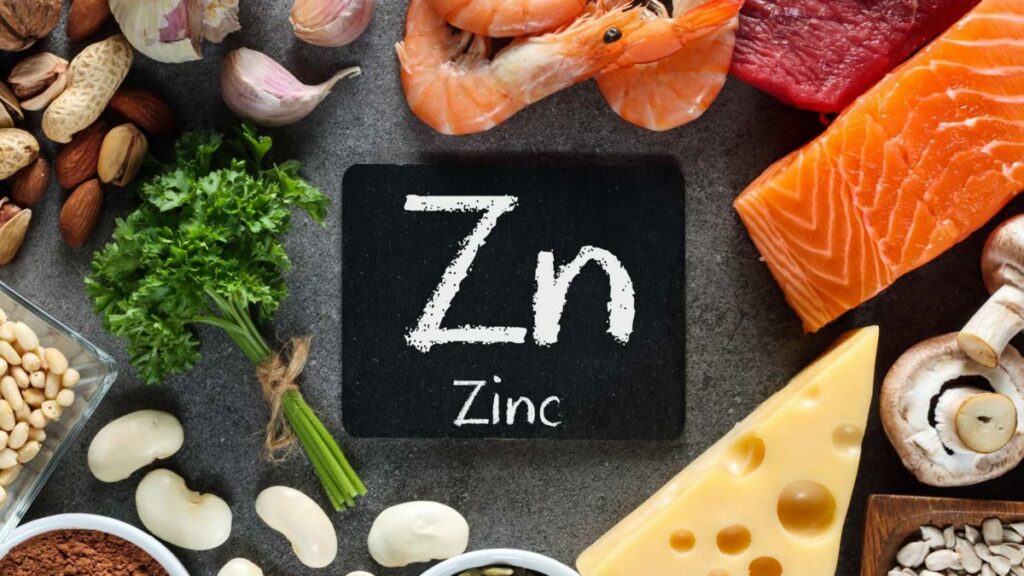introduction
Zinc is an essential trace element that plays a critical role in maintaining various physiological functions within the body. It is involved in numerous biochemical processes and is crucial for growth, immune function, wound healing, and the senses of taste and smell. In this comprehensive guide, we will explore the many benefits of zinc, its sources, recommended daily intake, potential side effects, and its vital role in promoting overall health and well-being.
Understanding Zinc
Zinc is an essential mineral, meaning it must be obtained through the diet because the body cannot produce it on its own. It is found in various foods and is involved in numerous enzymatic reactions and biological processes. Zinc is particularly important for growth and development, immune function, and maintaining healthy skin, among other functions.
Benefits of Zinc
Immune Support
Zinc plays a central role in immune function. It is essential for the development and function of various immune cells, including white blood cells and natural killer cells. Adequate zinc levels are crucial for a robust immune response against infections and diseases.
Wound Healing
Zinc is essential for the process of wound healing. It plays a role in collagen production, which is crucial for skin, tissue, and organ repair. Zinc is often used in topical ointments and creams for wound healing and skin health.
Growth and Development
Zinc is vital for proper growth and development, particularly during infancy, childhood, and adolescence. It is required for the synthesis of DNA and RNA, cell division, and growth.
Reproductive Health
Zinc is important for reproductive health in both men and women. In men, it is necessary for sperm production and maintaining healthy testosterone levels. In women, it is essential for a healthy menstrual cycle and pregnancy.
Taste and Smell
Zinc is necessary for the senses of taste and smell. It is a component of taste receptors and olfactory neurons, allowing us to detect and differentiate various flavors and scents.
Cognitive Function
Emerging research suggests that zinc may play a role in cognitive function. Adequate zinc intake is associated with improved memory and cognitive performance, making it important for brain health.
Skin Health
Zinc is beneficial for maintaining healthy skin. It helps regulate sebum production and may be used in the treatment of acne. Zinc oxide is a common ingredient in sunscreens, providing protection against harmful UV rays.
Antioxidant Properties
Zinc acts as an antioxidant, helping to combat oxidative stress and reduce the risk of chronic diseases associated with free radical damage.
Gastrointestinal Health
Zinc is essential for maintaining the integrity of the gastrointestinal tract. It supports the health of the mucosal lining in the gut and may alleviate symptoms of certain gastrointestinal disorders.
Eye Health
Zinc plays a role in maintaining eye health. It is a component of the retina and may help reduce the risk of age-related macular degeneration.
Sources of Zinc
Zinc can be obtained from a variety of foods. Here are some common dietary sources of zinc:
Animal Sources
- Red meat (particularly beef and lamb)
- Pork
- Poultry (chicken and turkey)
- Fish (such as oysters, crab, and lobster)
- Dairy products (including milk and cheese)
- Eggs
Plant Sources
- Legumes (beans, lentils, chickpeas)
- Nuts and seeds (particularly pumpkin seeds)
- Whole grains (wheat germ, quinoa, and oats)
- Vegetables (spinach, mushrooms, and asparagus)
- Fortified Foods: Some breakfast cereals and nutrition bars are fortified with zinc.
A well-balanced diet that includes a variety of these foods can provide an adequate intake of zinc.
Recommended Daily Intake
The recommended daily intake of zinc varies by age, sex, and life stage. The recommended dietary allowances (RDAs) for zinc are as follows
Infants:
- 0-6 months: 2 milligrams
- 7-12 months: 3 milligrams
Children
- 1-3 years: 3 milligrams
- 4-8 years: 5 milligrams
- 9-13 years: 8 milligrams
Adolescents and Adults
- Males (14+ years): 11 milligrams
- Females (14-18 years): 9 milligrams
- Females (19+ years): 8 milligrams
Pregnancy and Lactation
- Pregnant teenagers (14-18 years): 12 milligrams
- Pregnant adults (19+ years): 11 milligrams
- Lactating teenagers (14-18 years): 13 milligrams
- Lactating adults (19+ years): 12 milligrams
Meeting the recommended daily intake of zinc is essential for promoting health and well-being. While zinc is important for health, excessive intake can lead to side effects and interfere with the absorption of other minerals like copper and iron.
Potential Side Effects and Considerations
Zinc is generally safe when consumed from food sources and within recommended dosages. However, excessive zinc intake from supplements can lead to side effects, including nausea, vomiting, diarrhea, and stomach cramps. Long-term excessive zinc intake can lead to more severe symptoms, such as lowered immune function and anemia.
Individuals with certain medical conditions, such as hemochromatosis (a genetic disorder that causes the body to absorb too much iron), may be more susceptible to zinc-related health issues. It is advisable to consult with a healthcare professional before taking zinc supplements, particularly if you are concerned about your zinc status.
Conclusion
Zinc is an essential trace element with a wide range of benefits for health and well-being. It plays a pivotal role in immune support, wound healing, growth and development, and maintaining the senses of taste and smell. Understanding the sources, recommended daily intake, and potential side effects of zinc is crucial for maintaining a healthy body and mind. By incorporating zinc-rich foods into your diet and seeking guidance from healthcare professionals when needed, you can harness its numerous benefits and support a healthier life.
- Top CBD Oils for Pets Comprehensive Review By Absc organics - September 30, 2024
- In Depth Review The Finest THCP Gummies By Galaxy Treats - April 1, 2024
- The Comprehensive Guide to the Benefits of Zinc - November 1, 2023

